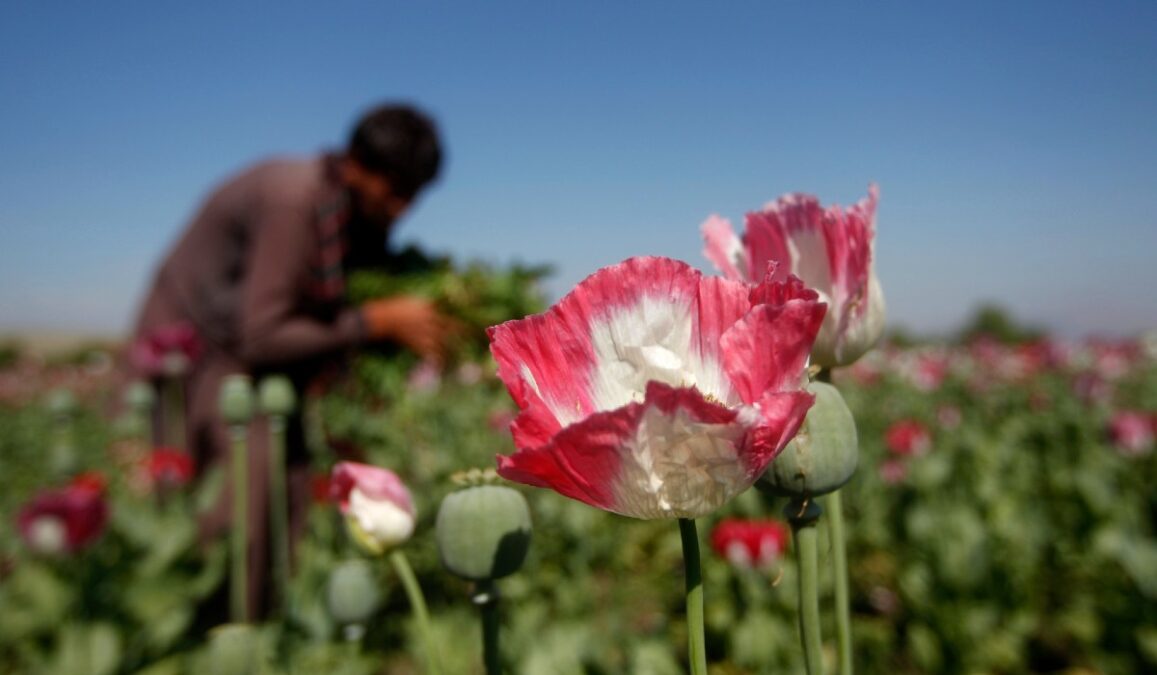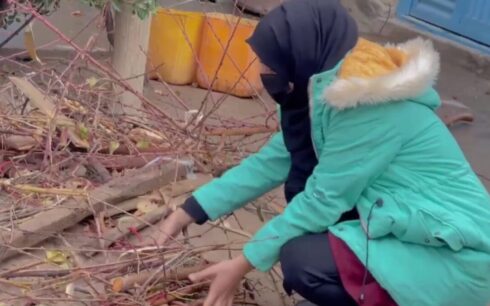Opium poppy cultivation in Afghanistan experienced a staggering estimated decline of 95 percent in 2023, driven by a drug ban imposed by the Taliban in April 2022, as revealed in a recent research brief by the United Nations Office on Drugs and Crime (UNODC).
UN officials underscored the sweeping ramifications of this near-complete contraction of the opiate economy and emphasized the immediate need for increased assistance to rural communities. This support should be coupled with alternative development initiatives aimed at forging an opium-free future for Afghanistan’s populace.
Opium cultivation reduction was observed across all regions of the country, plummeting from 233,000 hectares in 2022 to a mere 10,800 hectares in 2023. This dramatic reduction corresponds with a 95 percent decline in opium supply, dropping from 6,200 tons in 2022 to a mere 333 tons in 2023, as indicated in the UNODC report.
According to the UNODC, this abrupt reduction has had a direct humanitarian impact on many vulnerable rural communities that relied on income generated from opium cultivation.
Farmers’ income from selling the 2023 opium harvest to traders decreased by over 92 percent, declining from an estimated US$1,360 million in the 2022 harvest to just US$110 million in 2023, the report stated.
Ghada Waly, Executive Director of UNODC, commented, “This presents a genuine opportunity to work towards long-term solutions against the illicit opium market and its associated global harm. However, there are significant consequences and risks that must be addressed to ensure a positive and sustainable outcome, especially for the Afghan people.”
“Today, Afghanistan’s people urgently require humanitarian assistance to address their most pressing needs, alleviate the shock of lost income, and save lives,” Ms. Waly added. “In the coming months, Afghanistan will greatly benefit from substantial investments in sustainable livelihoods to offer Afghan farmers alternatives to opium cultivation.”
Roza Otunbayeva, the UN Secretary-General’s Special Representative for Afghanistan and Head of the United Nations Assistance Mission in Afghanistan, stressed the importance of sustainable alternative development efforts oriented toward drought-resistant agricultural activities and the effective use of resources.
Until 2023, Afghanistan’s opiate exports had frequently exceeded the value of its legally exported goods and services. The substantial contraction of the opiate economy in 2023, which contracted by 90 percent overall, is anticipated to have broader economic repercussions in Afghanistan.
The report highlighted that many farmers switched to cultivating wheat, resulting in an overall increase of 160,000 hectares in cereal cultivation across the Farah, Hilmand, Kandahar, and Nangahar provinces. While wheat cultivation may partially address food insecurity, it generates considerably less income compared to opium. Farmers in these provinces lost approximately US$1 billion in potential income in 2023 due to the shift to wheat.
Beyond Afghanistan, the reduced heroin production may lead to a decrease in trafficking and use, or it could stimulate the emergence of harmful alternatives, such as fentanyl and other synthetic opioids.
Data on seizures indicate that traders are depleting their opium inventories from previous record harvests to weather the shortage in 2023, while heroin processing has declined. Trafficking in other drugs, particularly methamphetamine, has surged in the region.
Despite high levels of opiate use within Afghanistan, evidence-based treatment options remain limited. The survey underscored the need for integrating evidence-based treatment into public health measures and assistance, including preventing individuals with opiate use disorders from turning to potentially more harmful substances.





